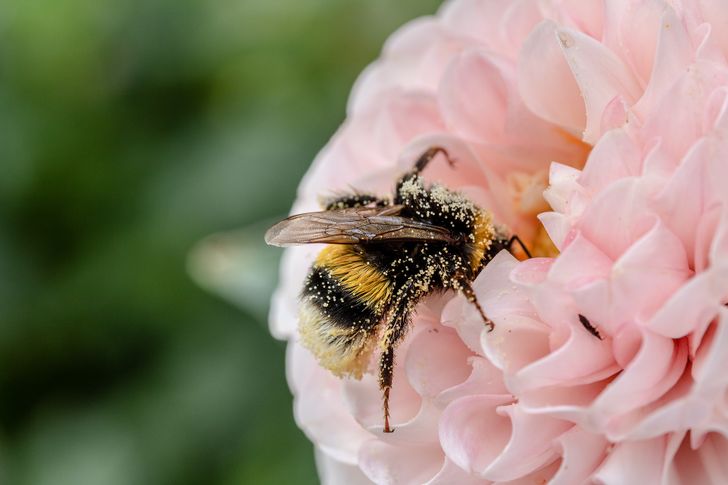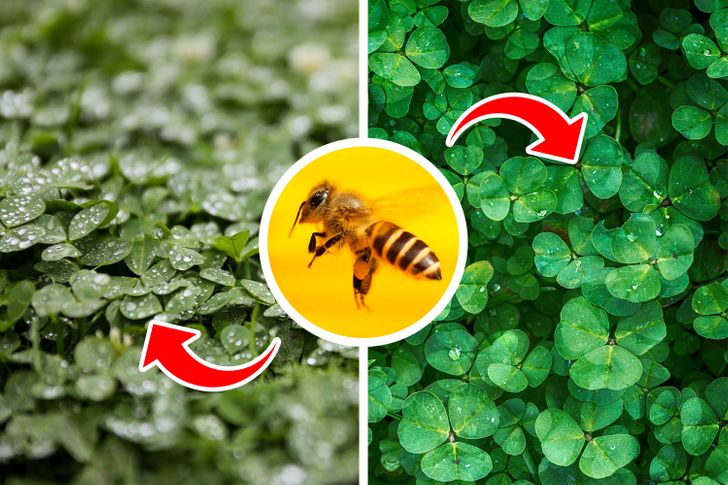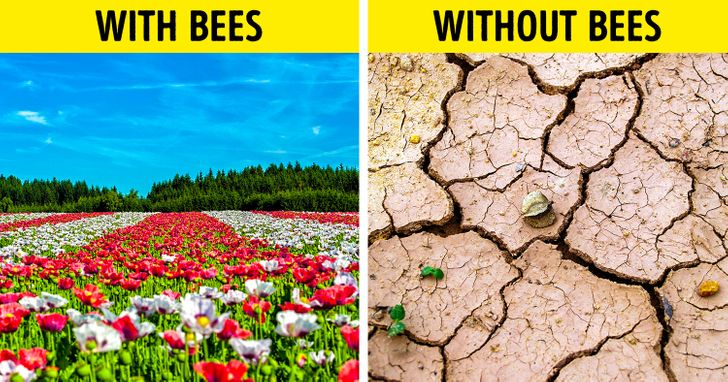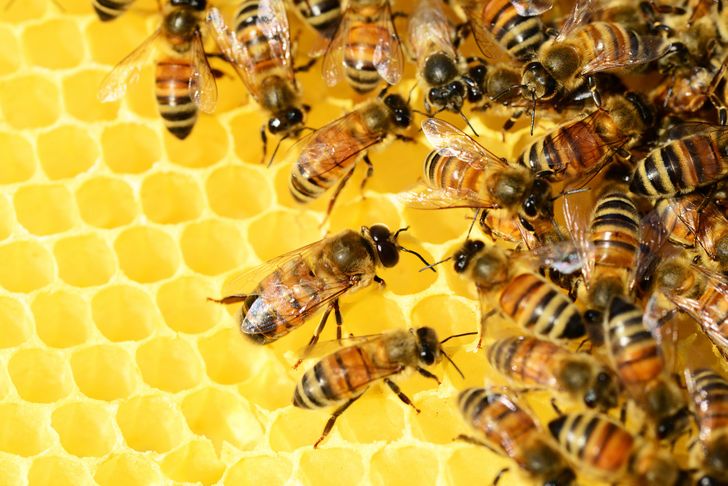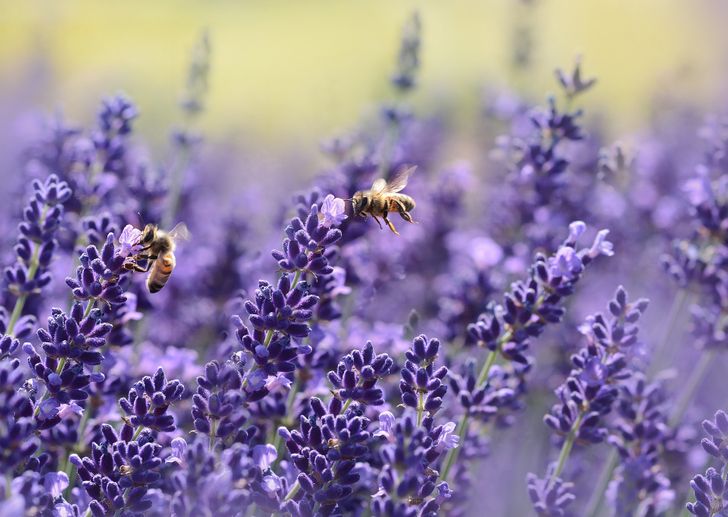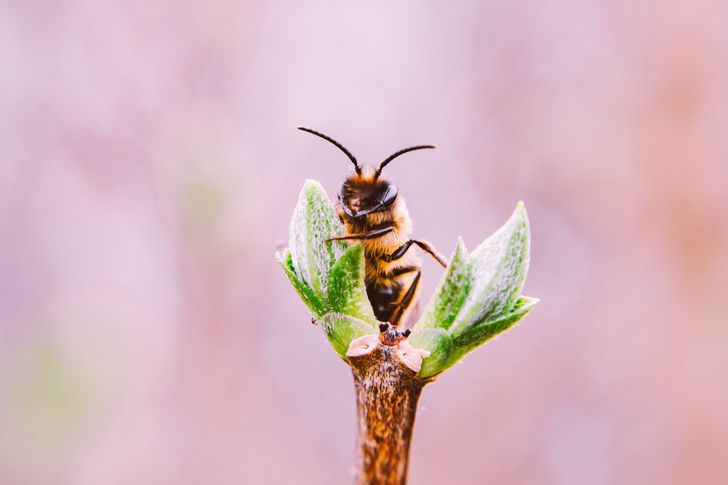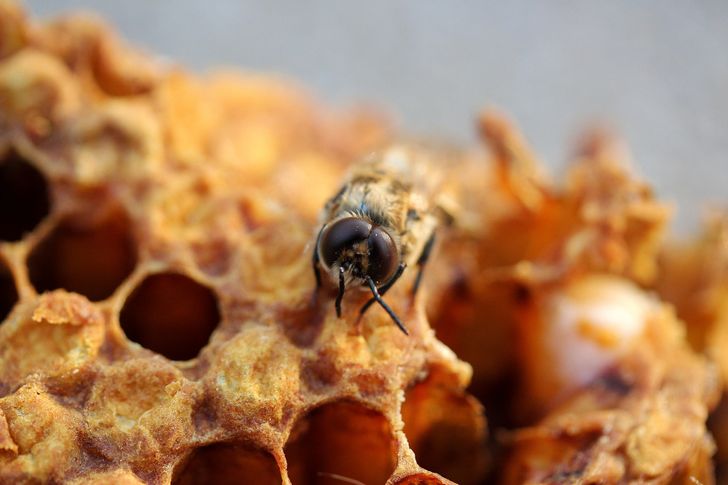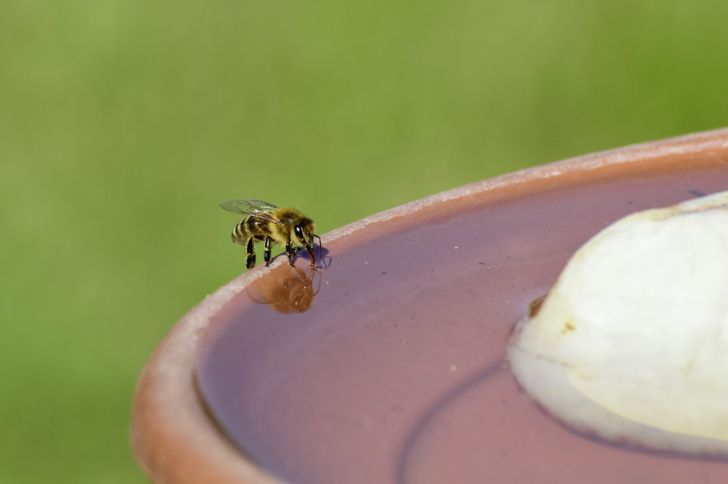I live in a big city, If I make a drinking fountain, will they come?
Why Bees Are So Important and What We Can Do to Prevent Them From Disappearing
The world bee population is in danger of extinction. Excessive and inappropriate use of pesticides in crops, certain parasites that reproduce uncontrollably, climate change, and human intervention are factors that have dangerously reduced bee populations on the planet. Scientists have come to the conclusion that, if this problem continues, it could mean the end of humanity.
Bright Side has done research on the importance of bees in human life and shares a series of steps that can help stop them from disappearing.
1. They take care of a third of the global pollination.
Bees are the world’s most important pollinator of food crops. It’s estimated that one third of the food we eat every day depends on pollination, mainly on bees, but also on other insects, birds, and bats. Many national or imported fruits and vegetables have been pollinated by bees. These include avocados, soy beans, sesame, cucumbers, citrus fruits, peaches, kiwis, cherries, blueberries, asparagus, broccoli, celery, squash, and melons, to name a few.
2. They help pollination of other crops.
Pollination is not only important for the food that arrives on our table, but it’s also vital for other crops, like coffee and cotton. Bees even pollinate forage crops, like alfalfa and clover, that are used to feed cattle. The work of bees is so important because it helps provide food for many other animals along the food chain.
3. They are an indicator of a healthy ecosystem.
The pollination of bees maintains the genetic diversity of flowering plants. This means that in an ecosystem where there’s a presence of bees, things work naturally without the necessity for human manipulation. Of course, this not only favors the production of flowers, fruits, and vegetables, but also preserves the species.
4. They are one of the most hardworking creatures on the planet.
The worker bees are organized into a rigorous society and each of them is distinguished by the role it plays in the colony.
- Cleaning bees: responsible for cleaning the hive.
- Honey bees: produce royal jelly.
- Honeycomb builders: develop glands that build the honeycomb.
- Foraging bees: they get the food and place it in the hive.
- Guard bees: they take care of the community so that no bees from other hives or wasps enter.
- Fanning bees: generate air flow to dehydrate the nectar.
According to data from the NGO, Ecocolmena Spain, the western honey bee (Apis Mellifera) can form colonies with 40 to 80,000 members. Within these colonies, there is a perfectly coordinated organization, with an elaborate, non-individualistic production system that works in favor of the hive.
5. They are responsible for beautifying the planet.
Without pollination, 1/3 of flowering plants would stop producing seeds, so the work of the bees is reflected in each color, texture, and smell of them. The beautiful landscapes of growers, parks, or just the countryside are possible thanks to the arduous journey of these insects. Each pollinated flower becomes a safe and attractive habitat for other insects or birds. Even researchers at the University of Bristol have shown that bumblebees can feel the electric field of a flower, learn to distinguish between fields produced by different floral shapes, or use them to determine if a flower has already been visited by other bees.
6. They are one of the most important insects.
The EarthWatch Institute has declared the bee the most important living being in the world. Dr. George McGavin has argued in a debate that a quarter of a million species of plants and flowers depend on bees: “It’d be a drab world without them. And we’d be living on gruel.” He also said that “Nearly three-quarters of all the food we eat (not volume) is directly or indirectly dependent on bees. The economic value of the bees’ pollination services for the world’s main food plants was estimated in 2005 at about £130 billion.”
7. Honey is not the only thing they produce.
How can we prevent them from disappearing?
In the face of this worldwide emergency, there is a series of measures that anyone can take.
- Plant native flowers (like lavender, dahlia, daisies, and sunflowers) in the garden, park, and even on your balcony.
- Avoid chemical insecticides and make natural ones (with garlic or pepper).
- Do not destroy the honeycombs.
- Build a shelter without chemical treatments, with wood or pieces of reed.
- Place a drinking fountain outside: you can make one out of a cake mold with marbles and water.
- Restore organic farming and consume local organic products.
May 20th is World Bee Day, and the purpose of this commemoration is to raise awareness and promote the care of the ecosystems where they live. There is no doubt that the bee is an amazing insect and we owe it a lot.
What do you think the world would be like without bees? Do you think we could live without them? We’re curious to hear your opinion in the comment section.
Comments
My granddad is a beekeeper and when I was younger I didn't understand the whole importance of his so-called hobby. Now I start realizing that it's a bit more than just keeping bees for honey
yeah, boy!
Related Reads
I Denied My MIL Access to My Baby—So She Dared to “Teach Me a Lesson”

12 Chilling Twists That Flip the Story on Its Head

My Fiancé Had No Shame for Cheating on Me and Still Expected Me to Keep His Baby

12 Disturbing Secrets People Realized Only Later On

12 Plot Twists That Turn the Story Upside Down

12+ Harrowing Revelations That Are As Eerie As It Gets

My Husband’s Tantrums Are Leading Him to Taste His Own Medicine

10 Shocking Secrets That Made People Rethink Their Entire Lives

19 Funny Things People Said After Anesthesia That Can Make You Laugh Harder Than Getting Tickled

I Ran Away From My Husband After He Asked Me to Wear a Strange and Inappropriate Thing

22 Children Who Turned Parental Embarrassment Into Stand-Up Comedy

12 Real Stories That Shine a Light on Humanity’s Best

